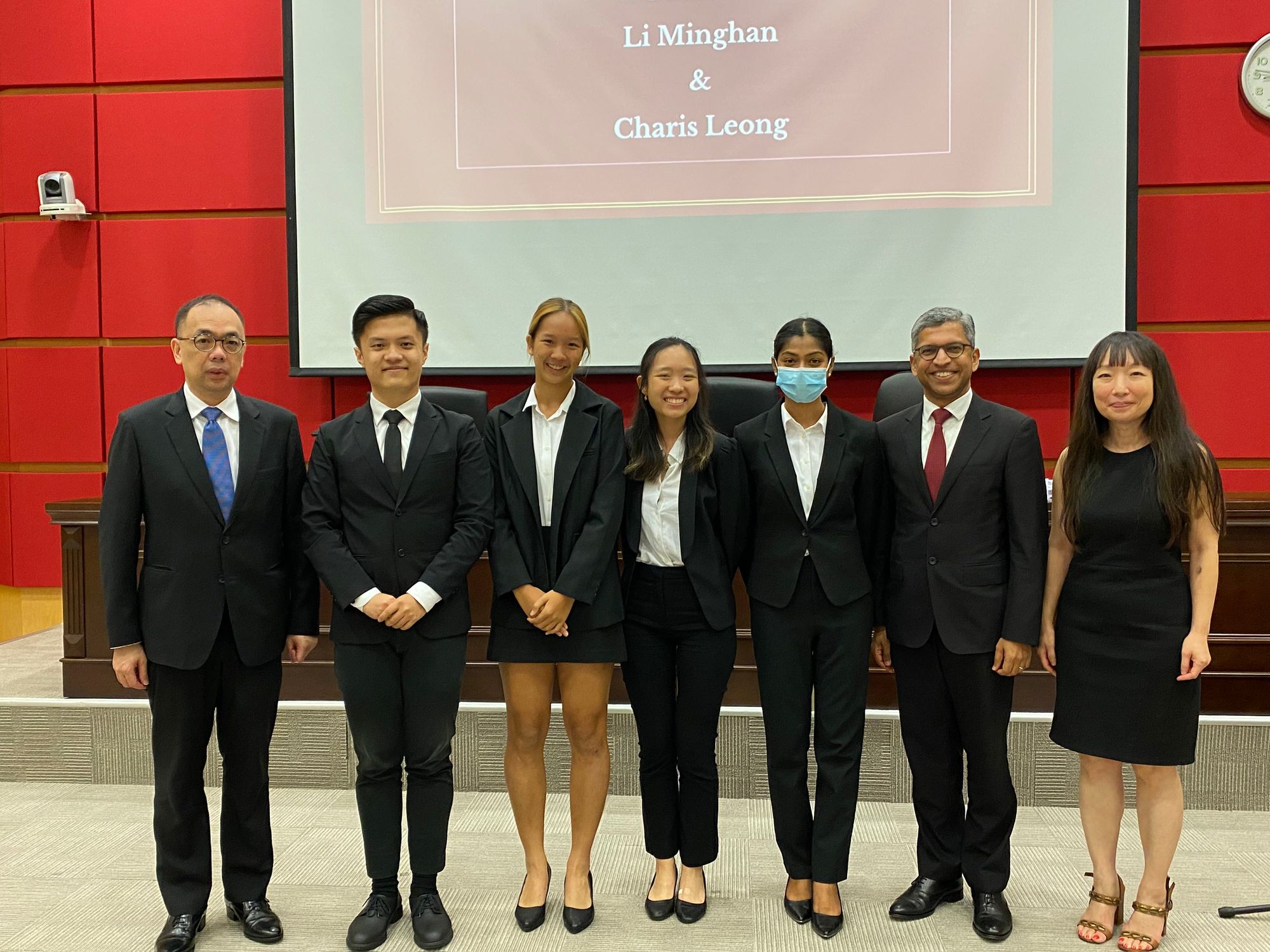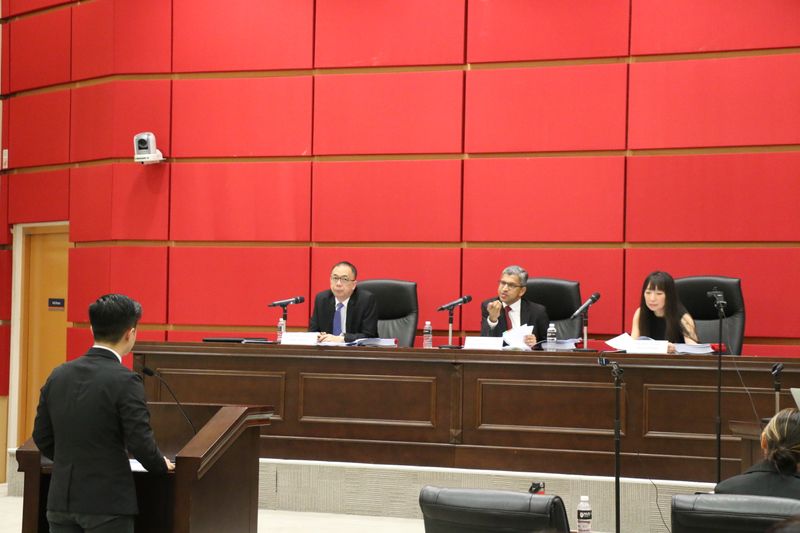The annual Attorney-General’s (AG) Cup returned in full force this year following its two-year hiatus due to the pandemic. For the first time in the Cup’s history, law students from SUSS were invited to participate alongside NUS and SMU Law. Following four rounds of intense competition spanning two months, participants were whittled down until eventually, only two teams remained (coincidentally, both from NUS) to face each other in the finals.
21st October, Wee Chong Jin Moot Court: The finalists and the audience alike waited in quiet anticipation for the judges of the annual Attorney-General’s Cup to grace them with their presence. Residing on the bench, Deputy Attorney General Hri Kumar Nair SC, Justice Mavis Chionh and Justice Aedit Abdullah. For the appellant, Elizabeth Koh (’24) and Dakshayani Ravindran (’24). For the respondent, Li Minghan (’25) and Charis Leong (’25).
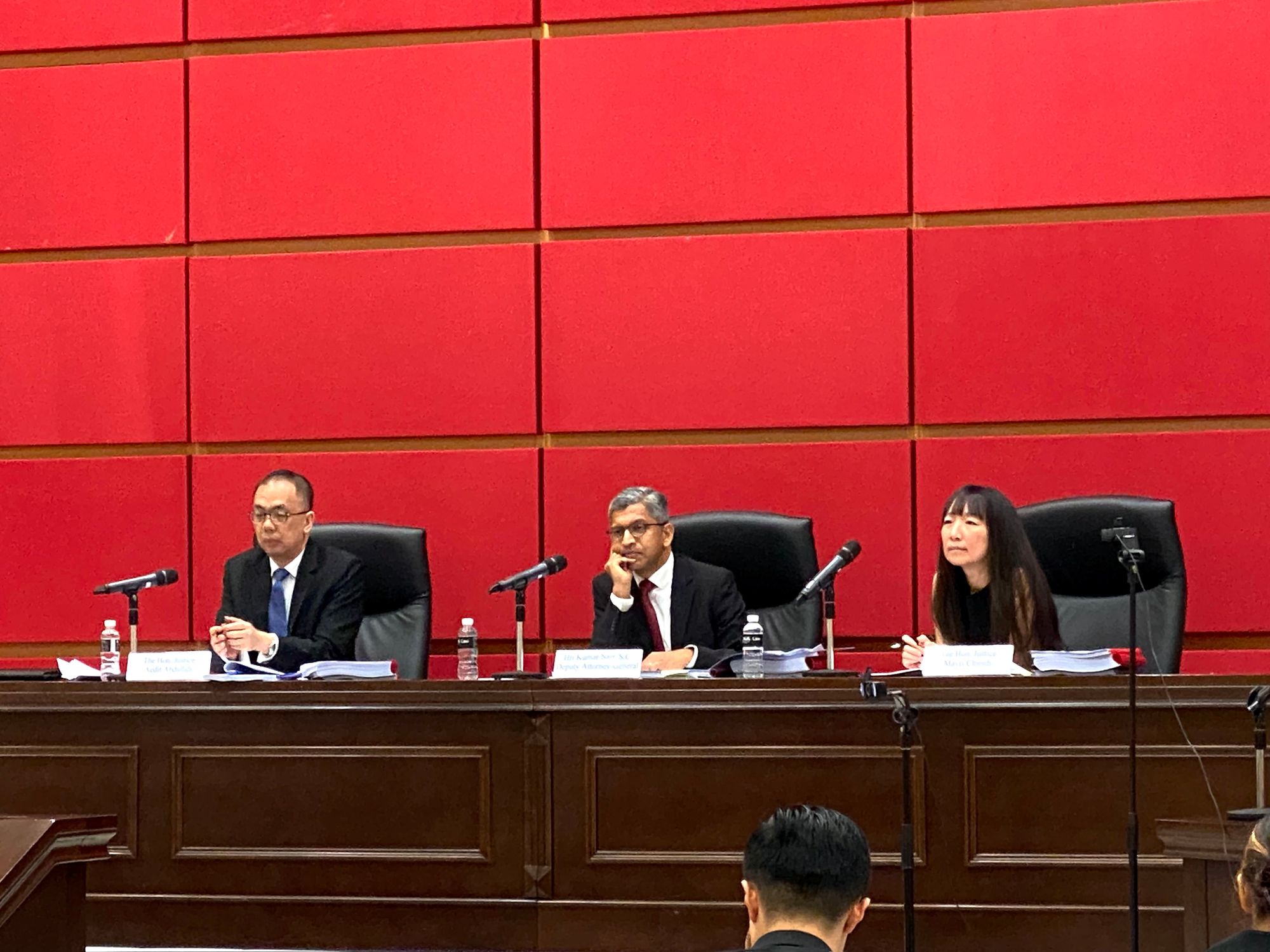
The final problem, crafted by Emeritus Professor Walter Woon, revolved around s 298A of the Penal Code. The appellant had burned a ‘religious’ text, the “Gospel of Astaroth”, in the presence of members of the Temple of Astaroth, the ‘religious group’. This, he knew, was prejudicial to the maintenance of harmony between religious groups and which disturbed public tranquility. The appellant was granted a conditional discharge, and subsequently appealed. The Prosecution respondent cross-appealed against the sentence imposed.
As you would have noticed, the term religious group is within apostrophes as whether or not the Temple fell within the ambit of religious group of s 298A was the first argument posited by Elizabeth. She vehemently renounced the temple as a religious group as it prejudiced the maintenance of religious harmony, endorsing highly divisive teachings and practices. The religion revolves around the deity Astaroth, and the Gospel refutes the truth of the Jewish Torah, Christian Bible and Muslim Quran. This line of argument was met with strong opposition by the Judges of what factors qualifies a religious group as it is rather arbitrary and open to consideration. She continued that, even if it was a religious group, the appellant’s actions did not disturb public tranquility as the requisite threshold, of disturbing the life of the community as a whole, was not met. This was met with resistance as well, as the Judges questioned the threshold argument and its validity. Despite the resistance, Elizabeth put up a strong front and addressed all the Judge’s concerns in turn.
Then, Minghan took the stand. He first pointed out, in response to Elizabeth, that the Singapore Parliament does not bar the recognition of faiths unless they threaten national security. He further reemphasised the fact that the appellant knew what he was doing, knew the implications of his act and knew he was deliberating denigrating the Temple. Finally, relying on the facts again, he noted that the appellant’s act did indeed disturb public tranquility with the appellant needing to be led away. His heavy reliance on the facts solidified his case. While the Judges still did have several questions, they were satisfactorily answered by Minghan.
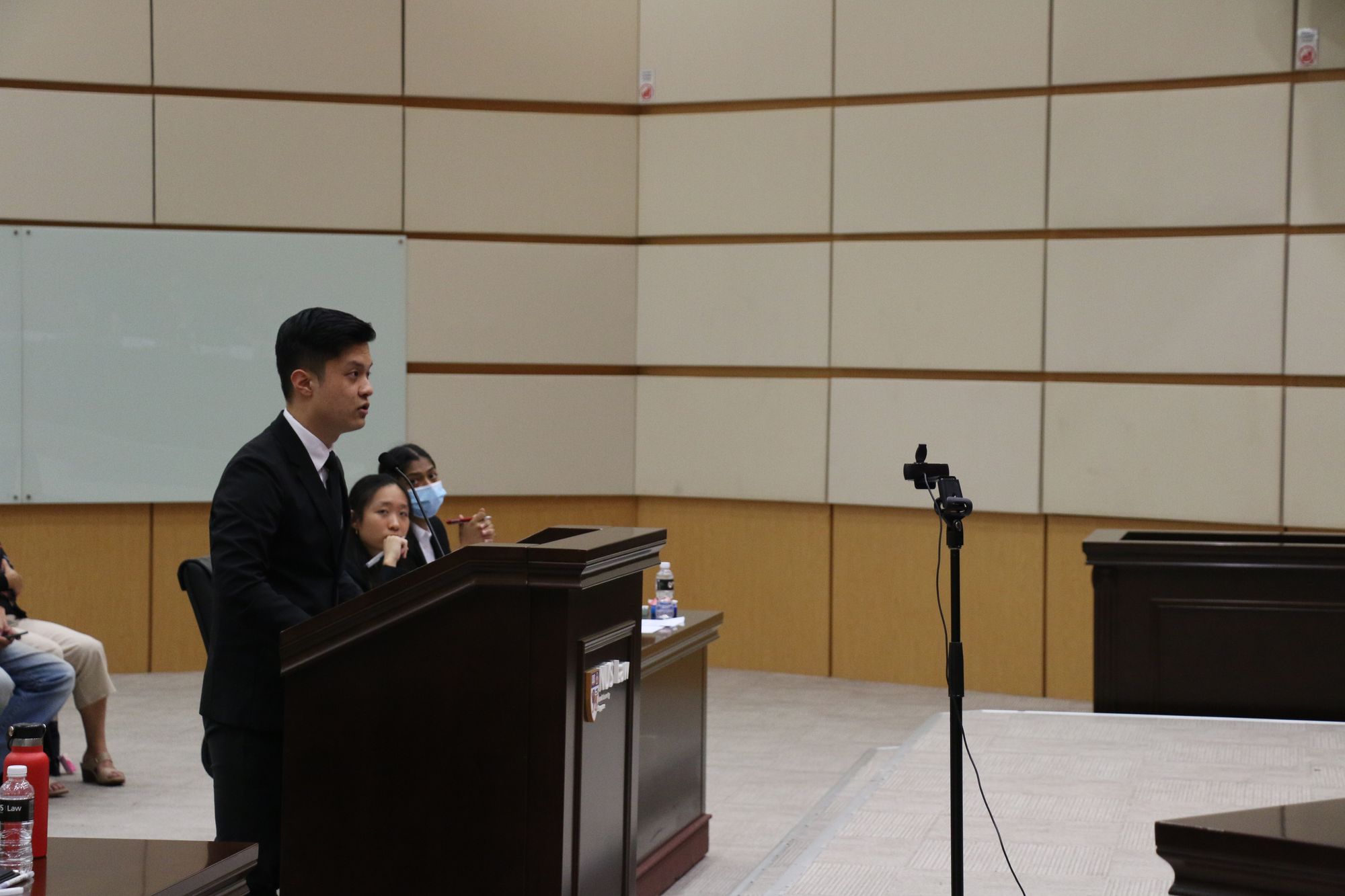
The floor was the appellant’s once again, with Dakshayani taking her place at the rostrum. She addressed the sentencing considerations of the appeal, in response to the respondent’s cross-appeal. She outlined that the conditional discharge should be maintained if the charge is still made out and eloquently detailed the factors for this such as the inappropriateness of a probation order due to the low risk of reoffending and the fact that it is inexpedient to inflict punishment. The Judges probed her about the suitability of a conditional discharge given the seriousness of the appellant’s actions and the knowledge of the prejudice. Yet, she did not falter under the pressure and successfully defended her argument for the sentence.
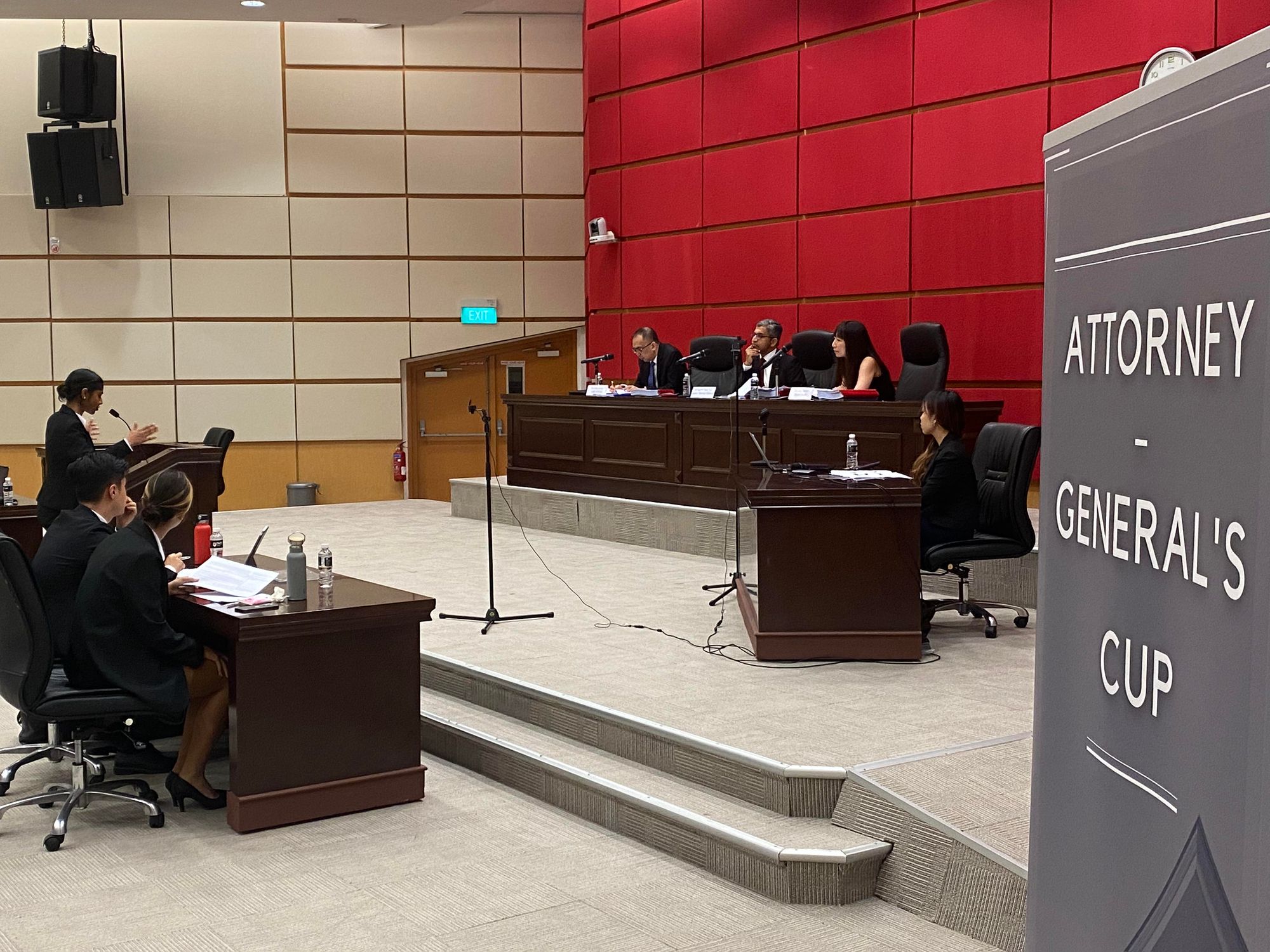
The last but certainly not the least, Charis presented her arguments. She called into question the trial judge’s granting of the conditional discharge and strongly advocated for a harsher sentence to be imposed. Delving deep into the principle of general deterrence, she urged the court to consider the paramount importance of racial harmony within Singapore. Book burning can undoubtedly trigger unease and offend the general public. Finally, giving an overview of the circumstances, she noted that there were no mitigating factors for the appellant that warrants the conditional discharge. Like the other finalists before her, she faced the same questioning and hypotheticals put forward by the Judges. Unflinching, she responded to the best of her abilities and with that the first stage of the competition was over.
Rebuttals followed with Dakshayani and Minghan both delivering emphatic justifications for why the opponent erred in their arguments and why their reasoning should be applied. A notable moment came when one of the Judges questioned Minghan about the appellant’s remorse concerning the situation that could affect sentencing. Calmly, Minghan replied that remorse was not apparent at all, starkly from the fact that the appellant was currently fighting his conviction. This drew an audible gasp from the audience.
The Judges took their leave for deliberation, and it was clear that a tough decision lay before them. The finalists remained eagerly awaiting the results as their family and friends encouraged them with ‘good jobs!’. Silence resonated across the room once more as the Judges returned. The Judges first issued their congratulations to the finalists and all other participants throughout each stage of the competition. They remarked about how the standard of mooting has improved considerably since they were students and each and every year they have returned as judges. After delivering individual comments for each finalist and noting how close the competition was, DAG Hri Kumar Nair proceeded to announce the much anticipated results.
The winner of the AG Cup 2022… Minghan and Charis! The two teammates looked at each other with shock and joy as a resounding applause arose from the audience. To add to their achievement, the team clinched the title of Best Memorial while Minghan emerged as the overall Best Speaker. The Judges commended the effort and accomplishment of Elizabeth and Dakshayani for reaching the finals and displaying a stellar performance as well.
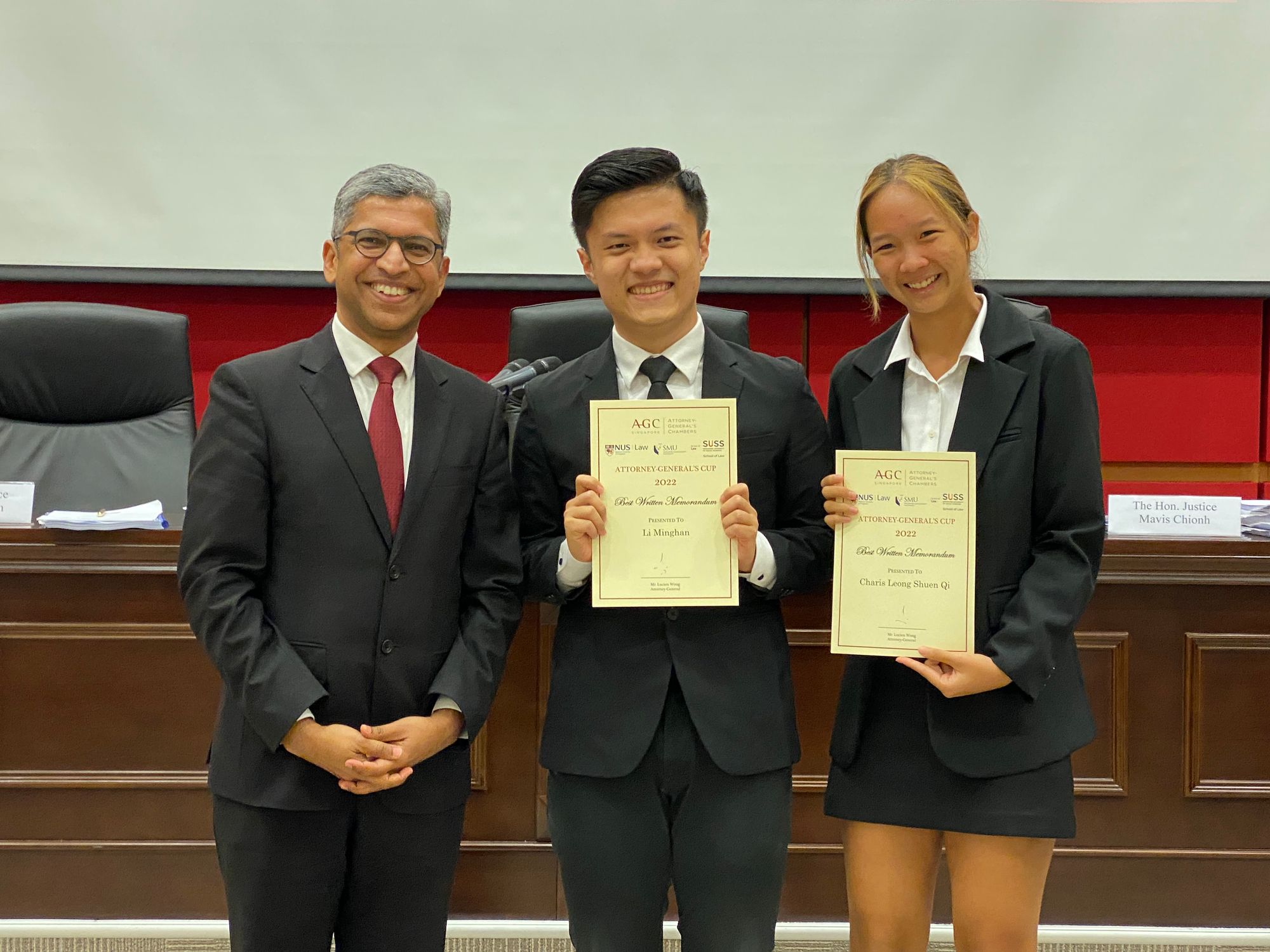
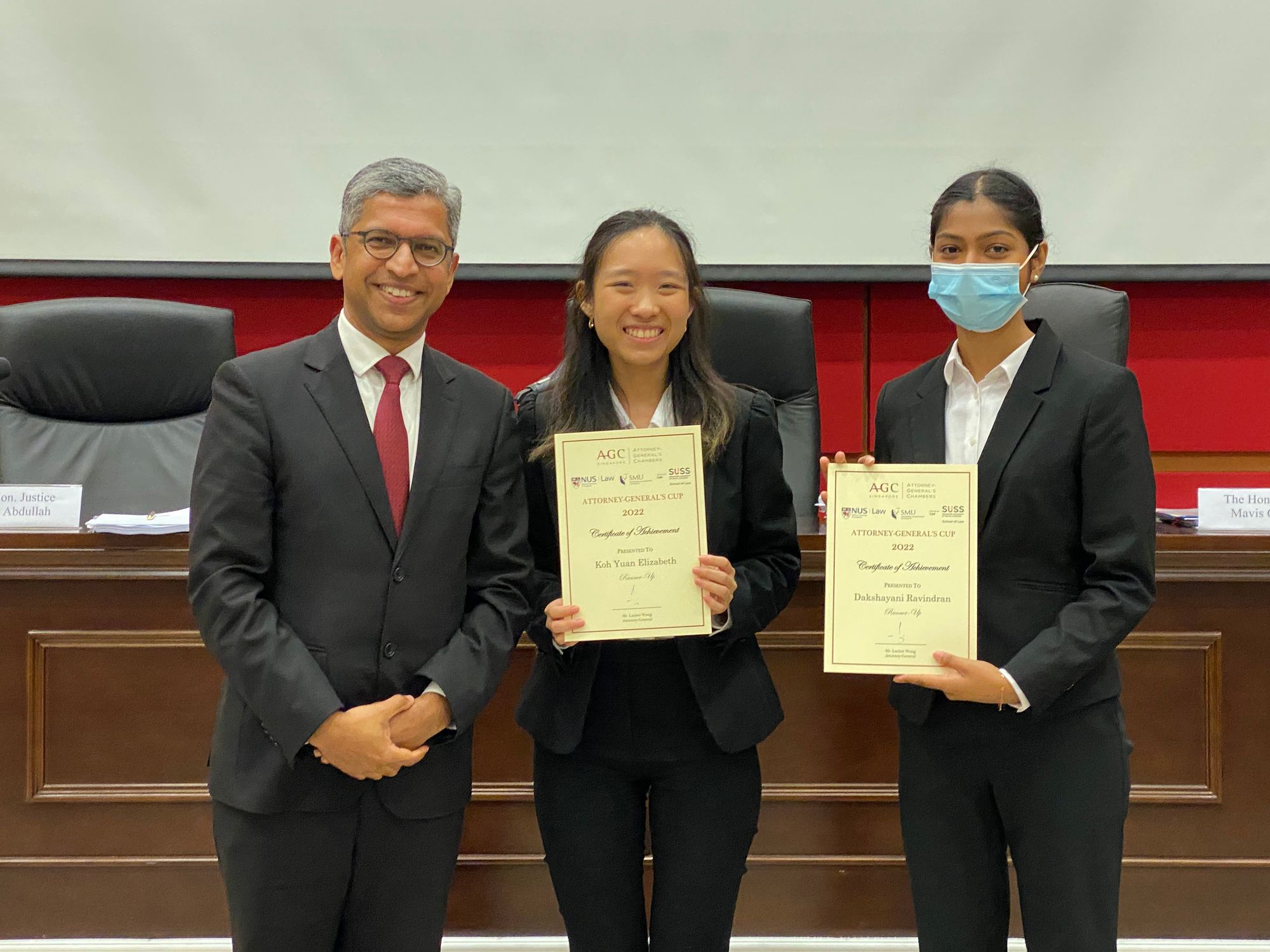
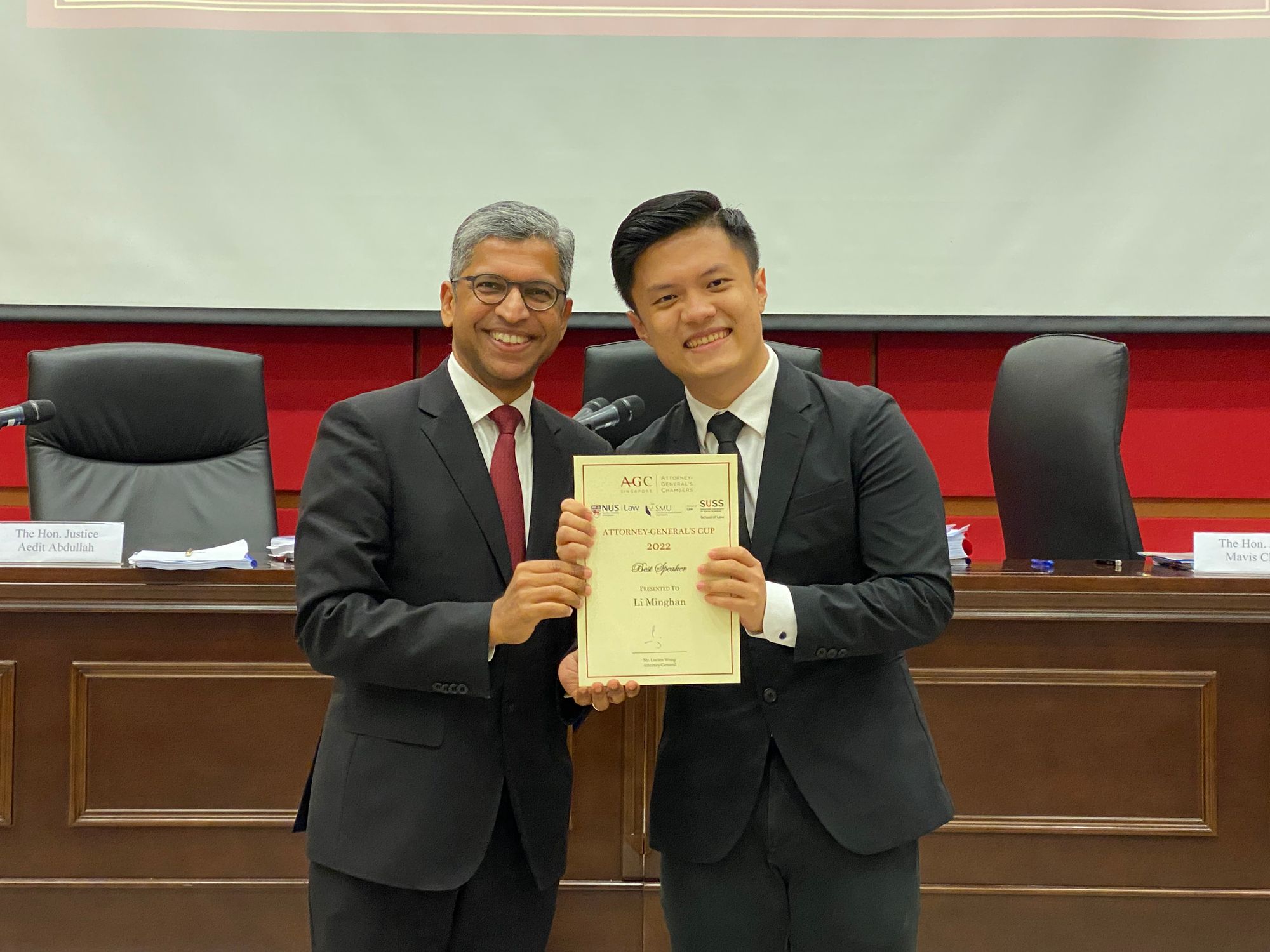
The tension in the room dissipated after the verdict was delivered and the prize presentation commenced. The Judges handed out the certificates to the finalists who all had beaming smiles plastered on their faces. Each Judge was handed a token of appreciation by the Criminal Justice Club as well. Following this, the family and friends flocked around the finalists to snap photos with them and express their congratulations.
All in all, I was glad that NUS had defended its title, carried from 2019, and I look forward to next year’s finals.
